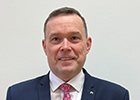Draft law amending the Health Services Organisation Act (advance directive of a patient’s end-of-life will) – first reading (604 SE)
Session: 15th Riigikogu, 5th session, plenary session
Date: 2025-04-23 20:41
Participating Politicians:
Total Speeches: 86
Membership: 15
Agenda Duration: 1h 27m
AI Summaries: 86/86 Speeches (100.0%)
Analysis: Structured Analysis
Politicians Speaking Time
Politicians
Analysis
Summary
The draft law 604 amending the law on the organisation of healthcare services, initiated by the Republic's Government, was considered on first reading. The content focuses on advance directives concerning patient end-of-life wishes. The draft law aims to give a fully competent adult the right to provide a clear instruction regarding what medical assistance they wish to receive or avoid when they are unable to make decisions themselves. It is important to emphasize the voluntary nature of the advance directive, its recording in a digital health record, consultation with a doctor if necessary, and that it does not pertain to assisted suicide or euthanasia. The drafting and adherence to advance directives are primarily intended for situations where a person has a temporary or permanent serious illness and is unable to express their will. Increased public awareness, training for medical personnel, and the involvement of various interest groups were also highlighted.
Decisions Made 5
The first reading is to be concluded with draft 604. This is the commission’s decision and reflects broad consensus across the entire session.

Appoint Margit Sutrop (ixYqyVDVJdw) as the representative of the steering committee.
To plan the agenda for the plenary session on April 23rd; continue the discussion and additionally involve the Council of Estonian Churches and other interest groups.
Deadline for submitting amendments: May 8th at 5:15 PM.
To involve a wider audience and media through collaboration: training for medical professionals and public awareness activities to explain the concept and practical application of an advance directive.
Most Active Speaker
Margit Sutrop (ixYqyVDVJdw) – Reform Party, right/right-wing (likely a member of a liberal, center-right, or right-wing party). She was one of the main speakers at the meeting, and her participation and leadership position indicate that she was the most active speaker in this presentation and discussion.
Aseesimees Arvo Aller
AI Summary
Today we are addressing the eighth and final item on the agenda—the Government-initiated draft amendment No. 604 to the Health Care Services Organization Act (the patient's end-of-life wishes declaration), which is the first reading and the rapporteur is Minister of Social Affairs Karmen Joller.
Sotsiaalminister Karmen Joller
AI Summary
The purpose of creating an advance directive is to give a person at the end of life the right to decide what medical care they want or do not want to receive; it is voluntary, visible in the digital health record, and should be consulted with a doctor in advance, and, if necessary, can be amended or withdrawn, and does not apply when the person is capable of expressing their own will and is not related to assisted suicide or euthanasia.
Aseesimees Arvo Aller
AI Summary
The vice-chairman Arvo Aller simply asks the question in his speech: "Is that all?"
Sotsiaalminister Karmen Joller
AI Summary
Minister of Social Affairs Karmen Joller answered affirmatively.
Aseesimees Arvo Aller
AI Summary
The vice-chair thanks the audience and invites questions, giving the floor to Urve Tiidusele.

Urve Tiidus
Profiling Eesti Reformierakonna fraktsioonAI Summary
Urve Tiidus said that the draft includes materials derived from the practices of European countries, which came from the Latvian Parliament's Analytics Department a few years ago, and asked whether any country has been more of an example for the draft.
Sotsiaalminister Karmen Joller
AI Summary
We have followed Germany's example, where a doctor's consultation is provided and a detailed discussion about what the person wants and what they do not want takes place.

Lauri Laats
Profiling Eesti Keskerakonna fraktsioonAI Summary
In summary, the draft of the speech deals with the description of the patient's end-of-life directive and asks about the suitability of the designation, the time for discussion, and why the focus is on older people rather than 18-year-olds.
Aseesimees Arvo Aller
AI Summary
Vice-Chairman Arvo Aller invites Lauri Laats to give a speech.
Aseesimees Arvo Aller
AI Summary
The message emphasizes that your time has come.

Lauri Laats
Profiling Eesti Keskerakonna fraktsioonAI Summary
The question is why no deadline has been set, as in many countries.
Sotsiaalminister Karmen Joller
AI Summary
The Ministry of Social Affairs' draft proposes a system of voluntary advance directives, by which a person can, before death, state that they should not be kept alive by medical means, and which does not set deadlines but adds periodic reminders to reconsider the decision.
Aseesimees Arvo Aller
AI Summary
Vice Chairman Arvo Aller invites Irja Lutsar to speak.

Irja Lutsar
Profiling Eesti 200 fraktsioonAI Summary
Irja Lutsar emphasized that people should be regularly reminded to review the list and to check whether they still want to abandon what was abandoned at that time, because treatment methods and circumstances may change over time.
Sotsiaalminister Karmen Joller
AI Summary
The Minister of Social Affairs Karmen Joller confirmed that she also supports it.
Aseesimees Arvo Aller
AI Summary
The deputy chairman Arvo Aller asked Riina Solman to take the floor.

Riina Solman
Profiling Fraktsiooni mittekuuluvad Riigikogu liikmedAI Summary
Riina Solman raised the topic of young people's end-of-life advance directives and asked how doctors should act in such a case, when the digital health record states "do not resuscitate me under any circumstances," even though there are known examples where people have been woken from a coma and recovered.
Sotsiaalminister Karmen Joller
AI Summary
The presentation emphasizes that in cases of injuries and illnesses among young people, doctors decide based on prognosis and future quality of life and follow the principles of medical ethics that always protect the patient's interests, even in situations where the brain no longer responds and there is brain death or a coma, and there is no way back.
Esimees Lauri Hussar
AI Summary
The chair thanks and asks Eero Merilindi to take the floor.

Eero Merilind
Profiling Fraktsiooni mittekuuluvad Riigikogu liikmedAI Summary
Eero Merilind said that this is a very important draft bill, and asked whether a person can amend or revoke a will that has already been prepared.
Sotsiaalminister Karmen Joller
AI Summary
A person may at any time, both verbally and in writing, consult a doctor and ask what exactly a given procedure or term means, and, if necessary, obtain another doctor's opinion.
Esimees Lauri Hussar
AI Summary
Chairman Lauri Hussar invited Kristina Šmigun-Vähi onto the stage.

Kristina Šmigun-Vähi
Profiling Eesti Reformierakonna fraktsioonAI Summary
Kristina Šmigun-Vähi asked two questions: what information campaign measures are planned so that people know about the possibility of drafting an end-of-life directive, and how will all healthcare workers be trained so that they can cope with such an emotionally difficult task.
Sotsiaalminister Karmen Joller
AI Summary
Public information work and trainings will come into force in January 2027, with a particular focus on e-learning courses designed for medical professionals, in order to reduce confusion and clarify how the matter is to be handled, and information will be brought to the public using classical communication techniques, with all options being utilized.
Esimees Lauri Hussar
AI Summary
The chairman turned to Lauri Laatsi and said "Please."

Lauri Laats
Profiling Eesti Keskerakonna fraktsioonAI Summary
Lauri Laats emphasized that when considering the bill, the time and age perspective must be taken into account, because ideas formed in youth can change in later life, and deadlines, society's perception, and research provide an overall picture of how much this could affect patients.
Sotsiaalminister Karmen Joller
AI Summary
Minister of Social Affairs Karmen Joller said that they lack statistical data, because collecting it is impossible and the estimates would be imprecise; the problem has been raised by doctors and discussed with patient and doctor organizations, and although studies have been conducted in other countries, she cannot answer at the moment.
Esimees Lauri Hussar
AI Summary
The chair thanks very much and turns to his colleague Jüri Jaanson.

Jüri Jaanson
Profiling Eesti Reformierakonna fraktsioonAI Summary
Jüri Jaanson thanked the session and said that the bill takes an important step in the development of society, presented a technical question about the date of entry into force (January 1, 2027) and a clarifying question about the state of unconsciousness and the person's wish regarding how he should be treated, and added that when conscious a person can tell medical personnel their true wish, is that correct.
Sotsiaalminister Karmen Joller
AI Summary
If a person is conscious and able to communicate, even through hand gestures or facial expressions, and this is understandable to medical professionals, then the rule for expressing one's will is not applied, because there are different levels of consciousness, and the development of digital solutions and the conducting of training programs are necessary.
Esimees Lauri Hussar
AI Summary
The chairman Lauri Hussar invites Margit Sutrop to speak.

Margit Sutrop
Profiling Eesti Reformierakonna fraktsioonAI Summary
Margit Sutrop stressed that respecting the patient's will to avoid intervention must be accompanied by available palliative care, and she asked the minister how many resources are allocated to palliative care and whether they can be increased to support people on the difficult journey at the end of life.
Sotsiaalminister Karmen Joller
AI Summary
In my role as a GP, I have implemented both palliative care and the best supportive care, because palliative care is not intended only for the end of life, but also during periods when a person is out of action, and we plan to raise the level of competence, establish competence centers, and train doctors and nurses so that all colleagues acquire the necessary knowledge.
Esimees Lauri Hussar
AI Summary
Chairman Lauri Hussar invites Riina Solman to speak.

Riina Solman
Profiling Fraktsiooni mittekuuluvad Riigikogu liikmedAI Summary
Riina Solman emphasised that, by law, palliative care must be accessible, but in reality it is not available to all those in need, and there is a need for organizational arrangements and training, and she asked about the implementation of an advance directive and whether the ambulance crew leader always has medical qualifications.
Sotsiaalminister Karmen Joller
AI Summary
The presentation emphasizes that the wish of people in the terminal stage or in agony to die or to receive treatment that does not prolong life must be respected, and that ambulance services and trained nurses may carry out this wish only when the situation is very clear and the patient has expressed it clearly.
Esimees Lauri Hussar
AI Summary
Chairman Lauri Hussar asks Arvo Alleri to come onto the stage.

Arvo Aller
Profiling Fraktsiooni mittekuuluvad Riigikogu liikmedAI Summary
Arvo Aller raises the question of who is the advisor for the initial end-of-life directive and who serves as the signer or witness when the person cannot sign for themselves.
Sotsiaalminister Karmen Joller
AI Summary
The main idea is that the decision is always made by the person themselves, when there is a witness or a medical professional nearby who must demonstrate that the person understands and is confident about it, and even if the hands do not move, they understand and decide.
Esimees Lauri Hussar
AI Summary
The chair invites Riina Sikkut to speak.

Riina Sikkut
Profiling Sotsiaaldemokraatliku Erakonna fraktsioonAI Summary
Riina Sikkut said that the draft bill will make already existing rights — bodily autonomy and the consent to or refusal of treatment — applicable also to people who cannot express their will, and will ensure the realization of these rights.
Sotsiaalminister Karmen Joller
AI Summary
There is talk about fundamental rights such as the right to self-determination, the right to life and health, and the right to decide about one's life and health, which in fact empower a person's fundamental rights and expand their scope.
Esimees Lauri Hussar
AI Summary
The chairman Lauri Hussar asks that Urve Tiidus speak.

Urve Tiidus
Profiling Eesti Reformierakonna fraktsioonAI Summary
Urve Tiidus asks how, technically, a forward-looking personal will is prepared and notarized, and what constitutes a valid end-of-life directive.
Sotsiaalminister Karmen Joller
AI Summary
The questionnaire is valid for 90 days, and before a visit to the doctor the person must fill it out; when going to the doctor, a digital document is filled out with specific questions and answers (the option to add free text), and if digital skills are lacking, it can also be done on paper; all documents are entered into the health information system to strengthen the person's rights in a situation where they are unable to express their will.
Esimees Lauri Hussar
AI Summary
The chairman, Lauri Hussar, invited Jüri Jaanson onto the stage.

Jüri Jaanson
Profiling Eesti Reformierakonna fraktsioonAI Summary
Jüri Jaanson thanks the minister and asks for clarification on the situation before and after the application of the law in the case of an unconscious person, and on the handling of declarations of will, and whether doctors are obliged to implement them, highlighting the main differences.
Sotsiaalminister Karmen Joller
AI Summary
In the presentation it was stated that notarized declarations may be ambiguous, and doctors may not precisely understand what a person wants; therefore the patient's declaration of will must be followed (the Finnish example of a free-form system), and if a doctor does not wish to perform the desired treatment due to personal beliefs, another doctor may take over the patient.
Esimees Lauri Hussar
AI Summary
The chairman Lauri Hussar invites Arvo Alleri to speak.

Arvo Aller
Profiling Fraktsiooni mittekuuluvad Riigikogu liikmedAI Summary
Arvo Aller asks what happens with the initial counseling: whether its validity persists or disappears, whether the doctor will have a note that the initial counseling has been performed, and whether a declaration of will must eventually be made after 15–20 years, and whether after the initial counseling there is any deadline set.
Sotsiaalminister Karmen Joller
AI Summary
Within 60 days, a person has the opportunity to draft or not draft an advance directive, by answering questions and, if necessary after several visits, seeking the opinion of a doctor from another specialty, and the advance directive comes into force when it is confirmed with a digital signature or a handwritten signature and reaches the health information system.
Esimees Lauri Hussar
AI Summary
Chairman Lauri Hussar invites Madis Timpson to speak.

Madis Timpson
Profiling Fraktsiooni mittekuuluvad Riigikogu liikmedAI Summary
Madis Timpson asks what happens to the will declaration made at the notary and whether it remains in effect.
Sotsiaalminister Karmen Joller
AI Summary
The law remains in force, but the medical professional may not understand it or be sure whether the patient understood it, and is not obliged to follow it; therefore I recommend that people, when the law comes into force, do this together with a doctor and carefully consider what they want and what they do not want.
Esimees Lauri Hussar
AI Summary
The chair Lauri Hussar invited Kristina Šmigun-Vähi onto the stage.

Kristina Šmigun-Vähi
Profiling Eesti Reformierakonna fraktsioonAI Summary
Kristina Šmigun-Vähi asks how a doctor makes such a radical shift in their mindset and takes that decision, given that doctors are trained from the very first year as lifesavers.
Sotsiaalminister Karmen Joller
AI Summary
We do not coerce treatment, but we spare the person from suffering, we respect the patient's autonomy and their decision, and if necessary we refer the treatment to another physician.
Esimees Lauri Hussar
AI Summary
The speech will begin by inviting Riina Sikkut.

Riina Sikkut
Profiling Sotsiaaldemokraatliku Erakonna fraktsioonAI Summary
Riina Sikkut stresses that ordinary people should also think about end-of-life choices, discuss them with loved ones, and put their wishes in writing, because this reduces the burden and helps even without legal force – and could a change in the law bring about a broader societal change?
Sotsiaalminister Karmen Joller
AI Summary
Social Affairs Minister Karmen Joller emphasizes thinking about the topics of premature death and aging and the need for end-of-life planning, because chronic diseases can maintain a reasonable quality of life for a long time, and at the same time it is important to draft pension and financial plans.
Esimees Lauri Hussar
AI Summary
The chair, Lauri Hussar, invites Margit Sutrop to speak.

Margit Sutrop
Profiling Eesti Reformierakonna fraktsioonAI Summary
Margit Sutrop continues Riina Sikkut's question and emphasizes that information sheets should be prepared for patients and their relatives not only for doctors, but also for themselves and their loved ones, introducing, based on a Latvian idea, a looser form that allows describing what a good death means to them, and explaining that a material will or the distribution of money cannot be arranged, but one can think about what a good death means to them, and she asks whether the ministry could fund a video or TV series so that the topic would not be so frightening.
Sotsiaalminister Karmen Joller
AI Summary
Minister Joller emphasizes that a physical will can be drawn up in another location, and that is a matter for the notary, but it must be discussed early and widely and use different communication tools to reach people of different ages, because after the law is adopted a debate will arise in both the media and on TikTok.
Esimees Lauri Hussar
AI Summary
The chair thanks the minister, says that the questions have ended, and asks that Signe Riisalo, the chair of the Social Committee, be introduced at the Riigikogu's speaking podium.

Signe Riisalo
Profiling Eesti Reformierakonna fraktsioonAI Summary
Riisalo said that the commission produced a pragmatic summary on the topic of end-of-life advance directives: it is not automatic nor a coercive command, but is applied on the basis of consultation with a doctor and the person's will, and only if the condition corresponds to the description in the advance directive, which requires training of health care professionals, addresses critical ethical questions, and, based on the experiences of 16 countries, about 5–10% of adults have made such an advance directive; the draft will go to the plenary to complete the first reading, incorporating various target groups and the Estonian Council of Churches' opinion and asking for amendments.
Esimees Lauri Hussar
AI Summary
The chair, Lauri Hussar, thanked the presenter and announced that during the first reading two questions may be asked to each presenter, and the same applies to Riina Solman, so there are no questions for you.

Signe Riisalo
Profiling Eesti Reformierakonna fraktsioonAI Summary
Signe Riisalo sincerely thanks all her colleagues.
Esimees Lauri Hussar
AI Summary
The chair Lauri Hussar opened the negotiations, said that there really are negotiation offers, and on behalf of the Reform Party faction Margit Sutrop requested speaking time.

Margit Sutrop
Profiling Eesti Reformierakonna fraktsioonAI Summary
Margit Sutrop said that the Reform Party supports a bill that protects patient autonomy, enables the implementation of an end-of-life directive in the health portal, and obliges doctors to follow the patient's wishes even in cases of incapacity, and she emphasized the need to train doctors and allocate resources to end the suffering associated with prolonging life and to move medicine in the direction of the patient's wishes and autonomy.
Esimees Lauri Hussar
AI Summary
Chairman Lauri Hussar requests three more minutes.

Margit Sutrop
Profiling Eesti Reformierakonna fraktsioonAI Summary
Margit Sutrop spoke about the drafting of the end-of-life directive bill and its aim to increase patient autonomy, allowing adults to determine the situations in which they do not want life-prolonging procedures, and emphasized broad agreement and cooperation among different stakeholders to protect patients' wishes.
Esimees Lauri Hussar
AI Summary
The Speaker Lauri Hussar, on behalf of the Eesti 200 faction, asked colleague Irja Lutsar at the Riigikogu's speaking podium and also requested three additional minutes.

Irja Lutsar
Profiling Eesti 200 fraktsioonAI Summary
Irja Lutsar emphasizes that Draft Bill No. 604 concerns the voluntary use of a patient's end-of-life directive and not the legalization of euthanasia, increases autonomy and reduces the fear at the end of life, but at the same time emphasizes the need to improve palliative care and medical development and, if necessary, adjust the validity period of the directive in line with scientific progress.
Esimees Lauri Hussar
AI Summary
They thank, and on behalf of the Isamaa faction, ask Riina Solman to come to the Riigikogu's podium.

Riina Solman
Profiling Fraktsiooni mittekuuluvad Riigikogu liikmedAI Summary
Riina Solman emphasizes that the aim of enacting an end-of-life directive is to ensure that every person has a dignified end of life in accordance with their wishes, but it must be handled delicately, to prevent abuse, and to take into account the responsibilities of doctors and the health care system, and society's readiness.
Esimees Lauri Hussar
AI Summary
The chairperson, Lauri Hussar, politely asks whether the colleague would like some extra time, and emphasizes that he does not want to interrupt him.

Riina Solman
Profiling Fraktsiooni mittekuuluvad Riigikogu liikmedAI Summary
Riina Solman expresses willingness and indeed wants.
Esimees Lauri Hussar
AI Summary
The chairperson asks for three minutes of extra time.

Riina Solman
Profiling Fraktsiooni mittekuuluvad Riigikogu liikmedAI Summary
Riina Solman emphasizes that before developing hospital-based palliative care and the end-of-life phase, the topic of voluntary euthanasia must be thoroughly discussed, because current regulations do not guarantee that a person’s wishes are followed in agonizing situations, and the draft needs work and clearer implementation provisions, but the patient’s testament, i.e., an end-of-life directive, could provide a pain-relieving final option if it is properly regulated.
Esimees Lauri Hussar
AI Summary
Chairman Lauri Hussar emphasized that the speech lasts twenty seconds.

Riina Solman
Profiling Fraktsiooni mittekuuluvad Riigikogu liikmedAI Summary
Riina Solman cautiously emphasized that an end-of-life directive, assisted suicide and euthanasia can be addressed only after palliative care, and that national guidelines and an action plan are still being prepared.
Esimees Lauri Hussar
AI Summary
Chairman Lauri Hussar emphasizes that now is the time to act.

Riina Solman
Profiling Fraktsiooni mittekuuluvad Riigikogu liikmedAI Summary
Riina Solman said that the end-of-life directive unfortunately reached the table before this action plan.
Esimees Lauri Hussar
AI Summary
Chairman Lauri Hussar, on behalf of the Social Democratic Party faction, asked Riina Sikkut to be granted the floor in the Riigikogu and requested three minutes of extra time.

Riina Sikkut
Profiling Sotsiaaldemokraatliku Erakonna fraktsioonAI Summary
Riina Sikkut emphasizes that Estonia already has, and must implement, patient autonomy and an end-of-life wishes directive system, which allows a person to document their desired treatment and the boundaries of a dignified end of life, and will come into force on January 1, 2027 together with IT solutions and training for healthcare workers.
Esimees Lauri Hussar
AI Summary
The chairman, Lauri Hussar, closed the negotiations, finished the first reading of Draft Bill 604, and informed that the deadline for submitting amendment proposals is May 8 of this year at 17:15, and the sitting ended.